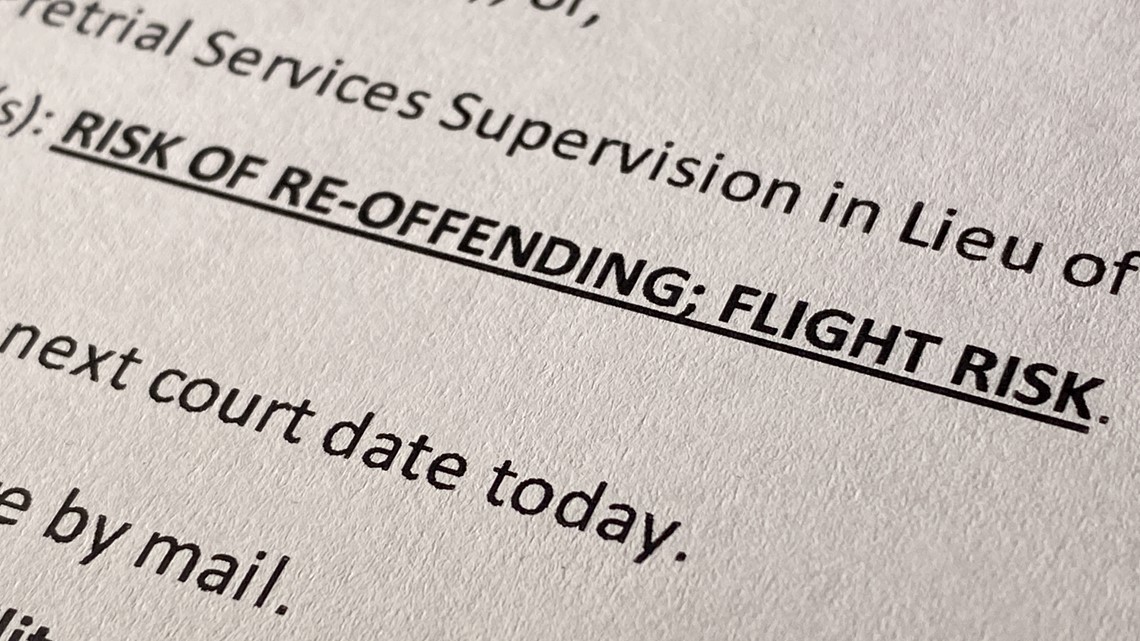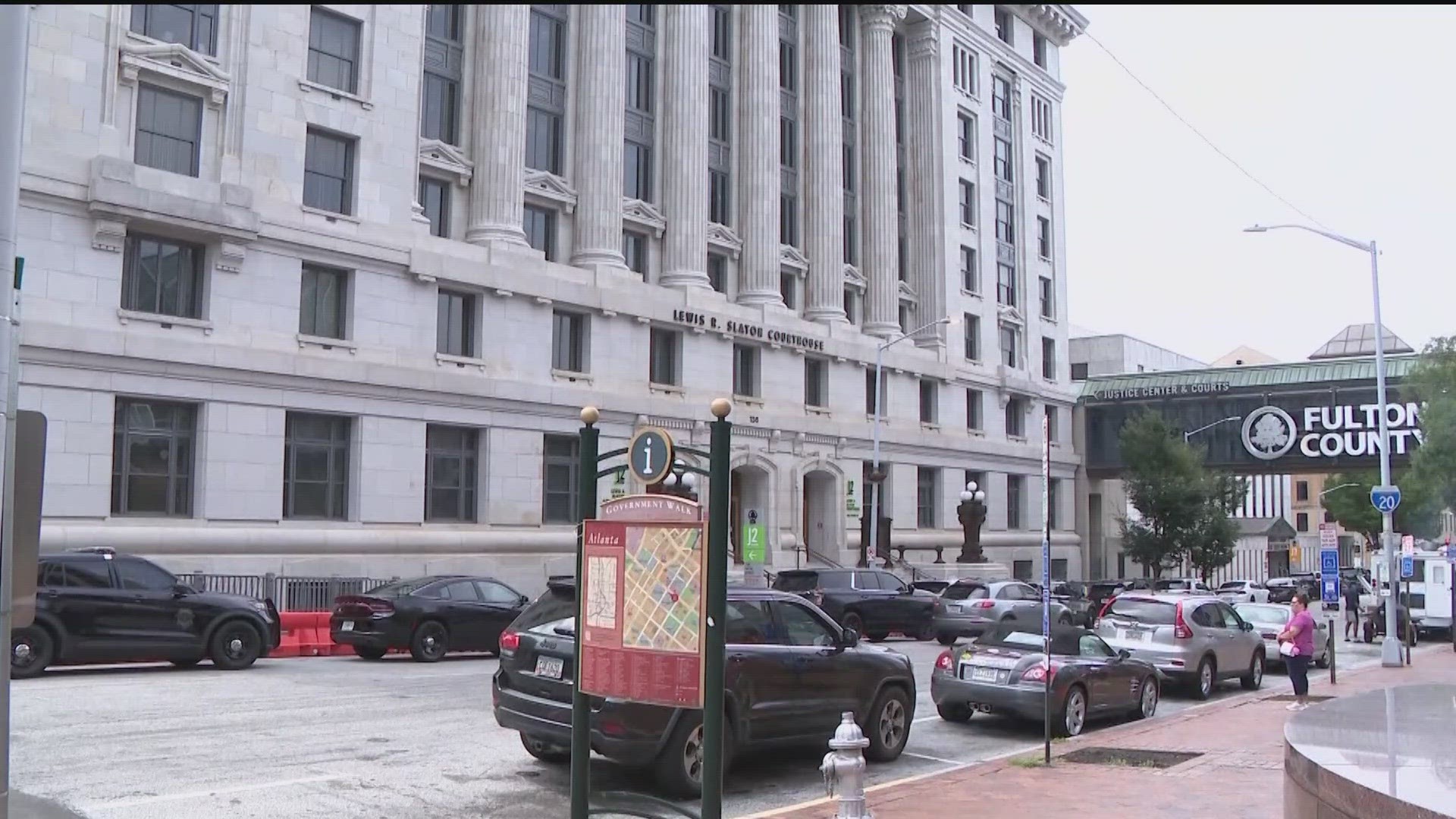FULTON COUNTY, Ga. — Georgia law says defendants held in custody must be indicted within 90 days. If they aren't, they're automatically owed bond.
But in cases involving charges ranging from drug trafficking to aggravated assault, Fulton County prosecutors have repeatedly missed that deadline. A June 2021 Atlanta Police raid is just one example.
Atlanta Police Department (APD) officers in tactical gear stormed a home, arresting a man who ultimately faced cocaine trafficking and other charges.
A Fulton County Superior Court judge denied him bond on June 23, 2021, finding that the defendant was a "flight risk" and a "risk of re-offending."


But by November, after prosecutors still had not obtained an indictment, a judge had no choice but to reverse course and grant bond.
In the court order granting it, the judge wrote: "Defendant has been in custody 156 days without indictment."


Prosecutors ultimately didn't obtain an indictment until 2023, court documents show.
Over the phone, District Attorney's Office Spokesman Jeff DiSantis said prosecutors were waiting for crime lab results to come back. However, court records indicate this wasn't an isolated incident.
"How are these cases slipping through the cracks?" asked Danny Porter, who served for decades as Gwinnett County's district attorney.
Through Fulton County records, 11Alive has uncovered close to 20 cases where defendants had their bonds initially denied but later granted after 90 days passed without an indictment.
"I think there's a systemic problem," Porter said. "The systemic problem is that they're not flagging these cases and putting them as a priority."
In many of the initial bond denials, for cases ranging from drug trafficking to armed robbery and aggravated assault, judges wrote they worried defendants posed a "flight risk" or a "significant danger to the community."
In their orders later granting bond, judges often cited just how long defendants had been waiting in custody.
One document even reads "defendant has been in custody for 91 days without indictment." Another lists "110 days."
"The worst possible scenario is one of these people who's been found to be a danger to the community or has a likelihood to reoffend is going to go out and commit some heinous, horrible crime," said Porter.
In Clayton County, Bridgette Jones already knows that. 11Alive first shared her story this summer, after her daughter Khaliyah was shot and killed in front of Lovejoy High School.
She'd just graduated from the same school a year earlier.
Police said the man who pulled the trigger was her ex-boyfriend, Cameron Hopkins, who had been arrested a year earlier for allegedly kidnapping her at gunpoint.
His bond was initially denied. But after Clayton County prosecutors failed to indict within 90 days, a judge was forced to grant him bond.
He posted his bond and was released.
Months later, police said he abducted Khaliyah again. Authorities said he led police on a high-speed chase with her in the car before opening fire, killing her.
After 11Alive brought the issue to Clayton County District Attorney Tasha Mosley, she said what happened was a "mistake" and that her office had changed its policies to try to prevent it from happening again.
The man accused of killing Khaliyah has not yet been arraigned, but intends to enter an initial plea of not guilty according to his attorney Steve Frey.
"We lost a great human that was going to help a lot of people," said Bridgette Jones. "Khaliyah just wanted to help people."


To be clear, the cases 11Alive uncovered in Fulton County make up a fraction of those that move through the court system each year.
And even when bond is granted, the suspect still needs to be able to pay the amount due and meet any other required conditions.
Most of the time, they don't have the money or have some other condition preventing their release, like a case in another county or a probation violation.
In all of the cases we examined, only one defendant managed to get out of jail.
But the failure to indict still carries a cost.
"The problem is the potential," Porter added. "Even though you have a few cases, any one of those could be a bomb that goes off."
To Bridgette Jones, it's now time for leaders to take accountability--and make changes--before what happened to Khaliyah in Clayton County happens to someone in Fulton County.
She added: "When something violent happens to somebody, make the prosecutors, the judges, whoever, tell us: 'why couldn't he be indicted?'"
The Fulton County District Attorney's office did not respond to multiple invitations to join us for an interview.
In a phone call, a spokesman said, partially as a result of the pandemic, prosecutors face a backlog of cases that can slow down a specific case's progress through the system.

